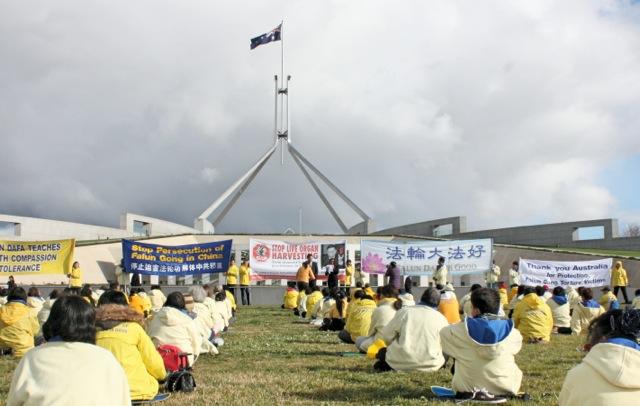Hong Kong pollution targets will be revised for the first time since 1987 according to authorities, but critics say the government’s approach to clean air is still disappointing.
More than 20 measures were endorsed by the Legislative Council this week, aimed at improving air quality in one of the world’s most polluted cities, home to 7 million people. The targets are set to be implemented no earlier than 2014.
Secretary for the Environment Edward Yau Tang-wah said there was an urgent need to update air quality objectives, which had not changed in 25 years.
Last week the Environmental Agency reported that road-side pollution levels were the highest on record, believed to be fuelled by continuous diesel vehicle emissions and industrial pollution from factories.
For the first time, the air quality standards will include a measure of airborne particles smaller than 2.5 microns in diameter (PM2.5), which are more harmful than larger particles as they can penetrate deep into people’s lungs, reports South China Morning Post.
A total of 22 measures are to be implemented, including phasing out heavily polluting vehicles, promoting hybrid or electric vehicles, and increasing the use of natural gas.
Hong Kong has struggled to improve air quality for decades and blames neighbouring Mainland China for part of its smog problem. The government admits that the new guidelines fall short of the World Health Organisation (WHO) requirements, but argues that the global targets are unachievable.
“But we have to understand that the ultimate WHO guidelines are a distant target. Even the European Union cannot fully adopt all of them,” Yau said, according to South China Morning Post.
“Given the surrounding environment of Hong Kong, we cannot set a goal that is unachievable.”
Environmentalists, however, have accused the Government of deliberately stalling the clean-air drive. They say the tougher targets have been under public consultation since 2009 and it should not have taken two years for the LegCo to approve them.
According to the South China Morning Post report Mike Kilburn, head of environmental strategy at think tank Civic Exchange, said he was “extremely disappointed” with the two-year delay in implementing the policy.
Dr Man Chi-sum, chief executive of environmental group Green Power, said that as well as setting new standards, the government must thoroughly implement the package of measures it set out to help meet the target. “Many of the measures are only being half-heartedly executed.”
The SCMP report also quotes Hahn Chu Hon-keung, senior environmental affairs manager at Friends of the Earth (Hong Kong), saying that the government had failed to set a timetable to reach the WHO’s highest targets and had set the target for PM2.5 at the lowest possible level.


